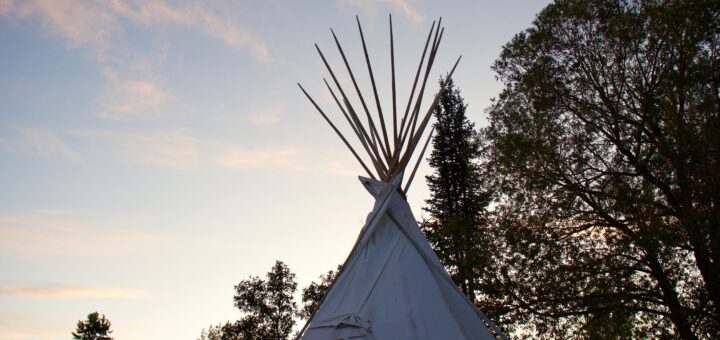MRU office of indigenization and decolonization offers day-long Tipi Teachings

by Riggs Zyrille Vergara, Publishing Editor
In partnership with the Faculty of Continuing Education of Mount Royal University (MRU), the office of indigenization and decolonization (oid) is piloting two non-credit immersive day-long courses about the various traditional teachings of the Blackfoot and Cree culture called Tipi Teachings.
Taught by Blackfoot and Cree elders, the courses aim to “help build Indigenous cultural competency among members of the MRU community and the general public.”According to the informational page from oid courses will tackle topics ranging from etiquette, family and social systems, traditional medicines, ceremonies, songs and dance, governance and more. Participants can get to raise a tipi, immerse themselves in the traditional ceremonies and even have the chance to try out some traditional foods.
Spaces are currently limited for the courses. The Tipi Teachings about the Cree community is on Aug. 4 from 8:30 a.m. – 4 p.m. The one focused on the Blackfoot community is on Aug. 10. Both are valued at a discounted price of $120 plus GST. Participants can get to experience the courses in an outdoor setting in the Centennial Sundial Garden at the T courtyard of the MRU campus.
Another recurring event from oid is one that calls for a conversation over tea called “tea with oid.” On Aug. 18 at 2 p.m., they will have another opportunity for anyone from the mru community to join oic, share stories with each other over some tea and bannock.
This is only the beginning of the long-term plan of oid to increase indigenous courses at MRU. Outlined in their Indigneous Strategic Plan last year is the goal to “Increase the integration of Indigenous content, resources and pedagogies in curriculum across MRU including field experiences, service learning, practica, clinicals and work experiences.”
In terms of their goal to indigenize the curriculum and student learning in MRU, they have listed a few more strategies they have in mind about what type of courses and learning opportunities can be included. They’re aiming to develop Indigenous-focued courses in each program and faculty so students can complete three credits of Indigenous content as part of their graduation requirement. This will include making a range of content modules for the courses. Part of this specific strategy is the creation of a university-wide committee that will vet the current and future Indigenous courses needed for graduation.
Another strategy is to develop an Indigenous languages curricula through the help of Indigenous communities and other post-secondary institutions. They are also planning to develop an Indigenous Studies major in the future, as well as minors and concentrations that complement other majors.



